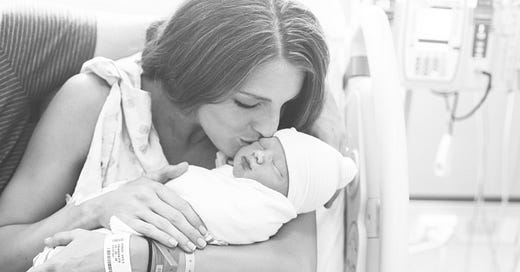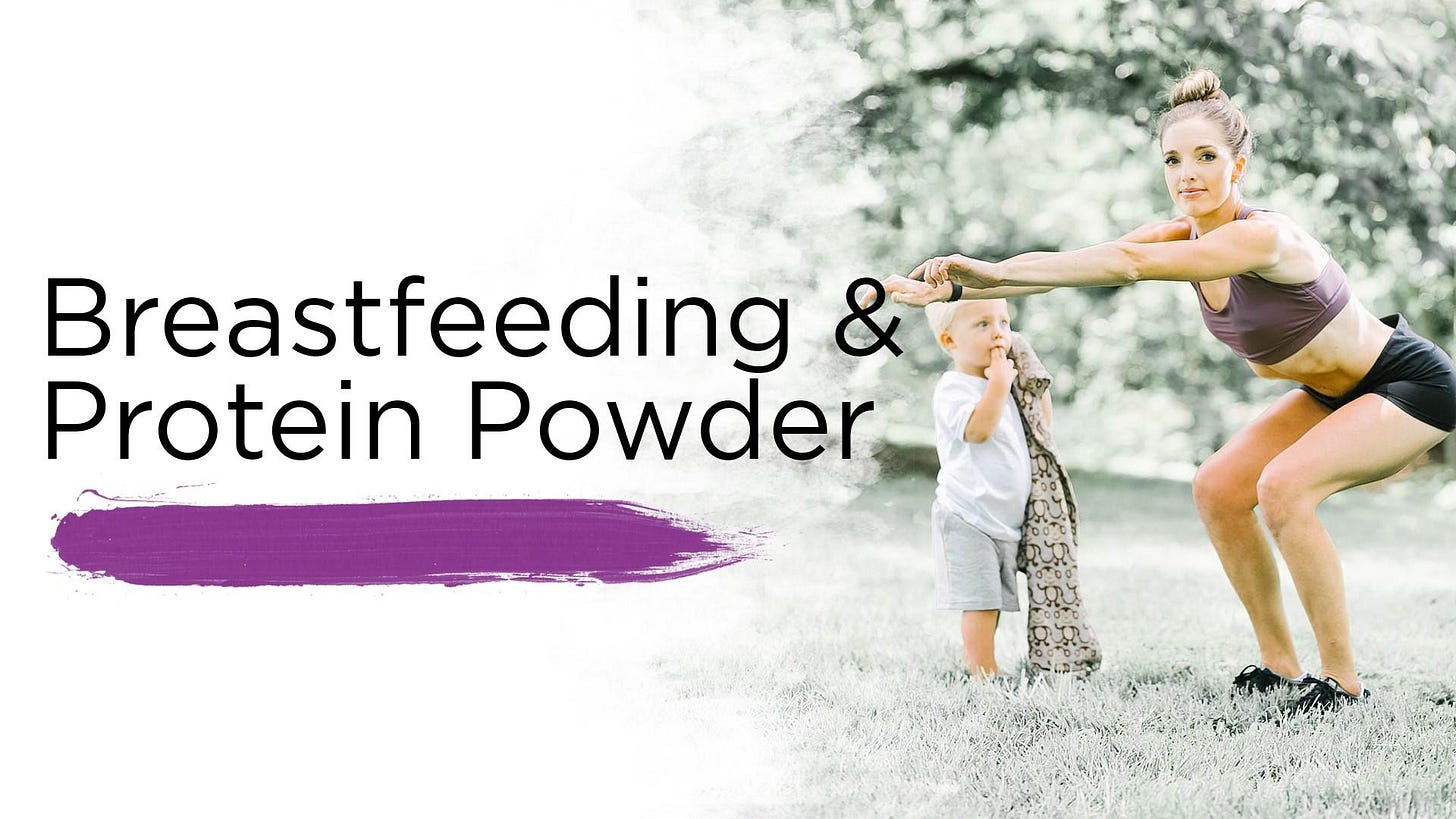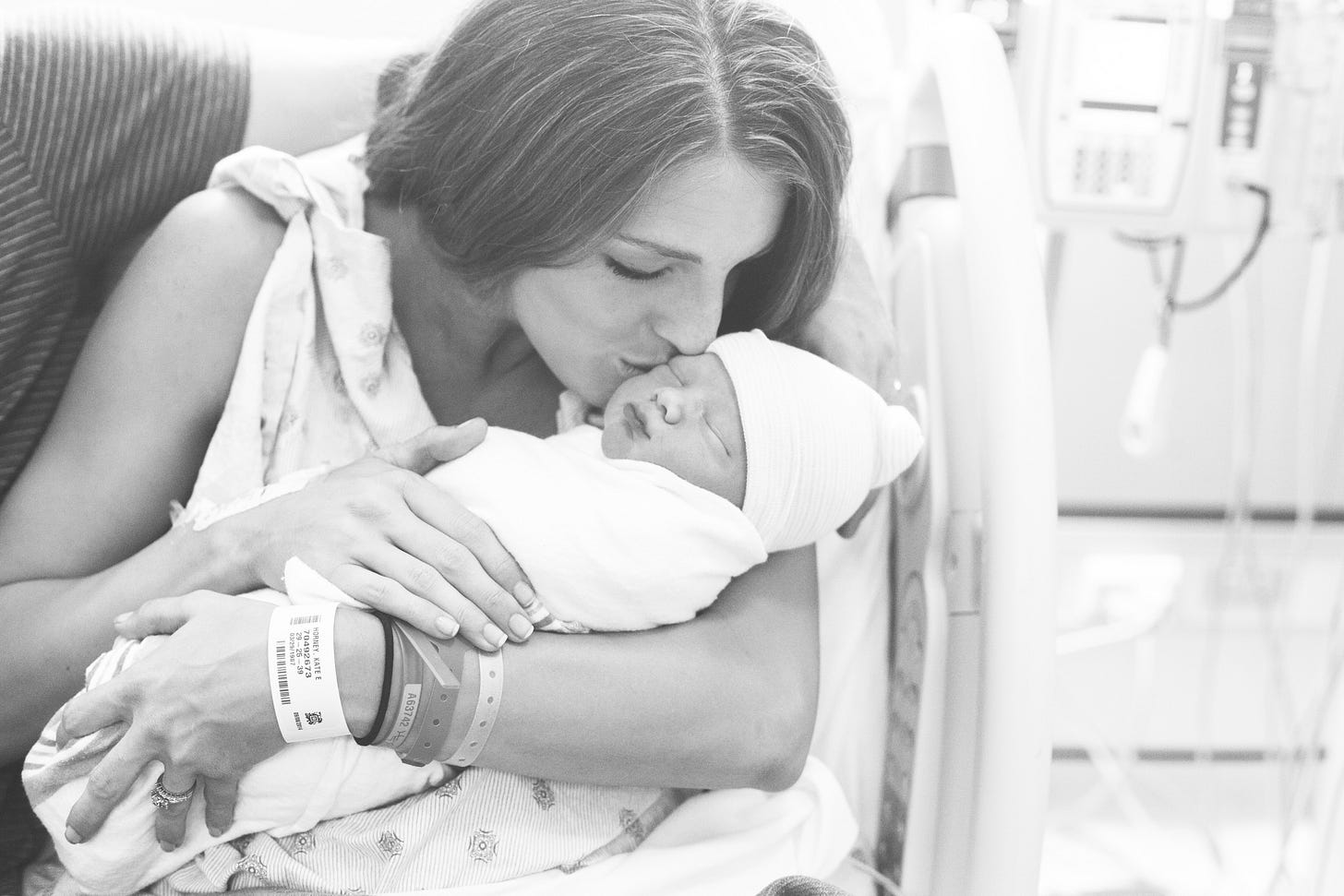Is Protein Powder Safe While Pregnant & Breastfeeding?
This is one of the most common questions I get from new moms. (Seriously, I get asked this multiple times a day!) And I get it — when I was pregnant with my first son, I wondered the same thing.
During pregnancy and breastfeeding, your body needs extra protein to support both you and your growing baby. Experts recommend an additional 25 grams of protein per day for pregnant and nursing women. This can be tough to achieve, especially if you have aversions to certain protein-rich foods like meat, dairy, or fish.
This is where protein powder can be a lifesaver. But the big question remains: Is protein powder safe during pregnancy and breastfeeding?
The Short Answer: Yes, But…
Yes, protein powder can be safe for pregnant and breastfeeding moms. However, not all protein powders are created equal. The safety of protein supplements depends on a few key factors:
• The type of sweetener used
• The quality of the protein source
• Any additional ingredients or additives
There is so much misinformation out there about supplements and pregnancy. As moms, we all want to do what’s best for our babies, and it can be overwhelming to navigate conflicting opinions.
First and foremost, always consult with your healthcare provider before adding any supplement to your diet while pregnant or breastfeeding. I spoke with my OB-GYN, midwife, and my boys’ pediatrician about using protein powder during pregnancy and nursing, and all three agreed that one or two servings per day are generally safe — as long as it’s not your only source of protein for the day.
Why You Might Need Extra Protein During Pregnancy & Breastfeeding
Protein is an essential macronutrient made up of amino acids, which are the building blocks of cells. During pregnancy, your need for protein increases, especially in the second and third trimesters when your baby is growing rapidly. Similarly, while breastfeeding, your body’s demand for protein is about 20% higher than usual.
Protein is vital for:
• Building your baby’s muscles, bones, and tissues
• Supporting your own muscle maintenance and recovery
• Producing breast milk to nourish your baby
What to Look for in a Protein Powder
When choosing a protein powder during pregnancy or breastfeeding, it’s crucial to pick a high-quality option. Here’s what to consider:
1. Protein Source:
• Whey Protein: Whey is a complete, high-quality protein source that’s safe for most pregnant and breastfeeding women unless you have a dairy allergy. Fun fact: Whey contains alpha-lactalbumin, one of the main proteins in human breast milk. It’s also used in many infant formulas, including those for premature babies.
• Plant-Based Proteins: If you’re avoiding dairy, look for a blend of plant proteins (like pea, rice, and chia) to get a complete amino acid profile. Just be cautious with heavy metal content, as some plant proteins naturally contain higher levels.
2. Sweeteners to Avoid:
• Saccharin: This artificial sweetener crosses the placenta and may stay in fetal tissue, so it’s best to avoid it during pregnancy and breastfeeding.
• Safer Alternatives: Stevia, monk fruit, and small amounts of sucralose are generally considered safe, but always double-check with your healthcare provider.
3. Additives & Fillers:
• Some protein powders are marketed to athletes and contain extra ingredients like caffeine, creatine, or other performance enhancers that are not suitable for pregnant or breastfeeding women.
• Choose a protein powder with minimal, clean ingredients and no artificial colors, flavors, or unnecessary additives.
Potential Concerns: Heavy Metals in Protein Powder
It’s worth noting that most protein powders contain trace amounts of heavy metals. This isn’t necessarily a safety concern as long as you choose a high-quality brand. Here’s what to look for:
• Animal-Based Proteins (like whey) tend to have lower heavy metal levels compared to plant-based proteins.
• Third-Party Testing: Look for protein powders that are tested by independent labs for contaminants, including heavy metals. Brands that are NSF Certified for Sport or Informed Choice Certified are generally good options.
How Much Protein Do You Really Need?
Most pregnant and breastfeeding women need about 70-100 grams of protein per day, depending on their weight and activity level. A typical serving of protein powder provides about 20-30 grams of protein, making it a convenient way to boost your intake.
Whole Foods vs. Protein Powder
While protein powders can be a great supplement to your diet, it’s still best to get most of your protein from whole foods. Some excellent sources of protein include:
• Animal-Based: Lean meats, poultry, fish, eggs, milk, cheese, and yogurt.
• Plant-Based: Beans, lentils, tofu, quinoa, nuts, and seeds.
Sample Daily Protein Plan for Pregnancy & Breastfeeding
Here’s a sample meal plan to help you hit your daily protein goal:
• Breakfast: Greek yogurt with berries and chia seeds (20g protein)
• Lunch: Grilled chicken salad with mixed greens and avocado (25g protein)
• Snack: Protein smoothie with protein powder, almond milk, and spinach (20g protein)
• Dinner: Baked salmon with roasted vegetables (30g protein)
This plan provides about 95 grams of protein, meeting the needs of most pregnant and breastfeeding women.
My Favorite Protein Powders for Moms
Here are some of my go-to protein powders that are safe for pregnancy and breastfeeding:
Promix Whey – Grass-fed, minimally processed, and free of artificial sweeteners.
MomFuelPlant Protein – Organic, non-GMO, and great for moms avoiding dairy.
Promix Collagen Peptides – A great option for extra protein and joint support, but pair it with a complete protein source to get all essential amino acids.
Final Thoughts: Is Protein Powder Safe While Pregnant & Nursing?
Yes, protein powder can be a safe and convenient way to meet your increased protein needs during pregnancy and breastfeeding, as long as you choose a high-quality product and consult with your healthcare provider.
I used protein powder throughout both of my pregnancies and while breastfeeding both of my boys, and it was a helpful way to ensure I was getting the nutrients I needed.
Remember, supplements should supplement a balanced diet, not replace it. Focus on eating a variety of whole foods while using protein powder as a convenient boost when needed.
If you’re still unsure, reach out to me! I’m here to help you navigate this exciting (and sometimes overwhelming) season of life.
Ready to feel strong, energized, and confident during pregnancy and beyond?
Join the BeyondFit Family, and let’s do this together!
Our BeyondFit Training & Nutrition Programs for customized workouts and meal plans are designed for busy women like you! From Beyond Baby or Mom Tummy Rehab to our monthly B|F Life Membership — let me help you find the right program for you! Learn More about BeyondFit
Would you help to grow this newsletter?
Taking just a few moments to click the heart button, leave a comment, or forward it to a friend can make a huge difference. Thank you! 🤍






